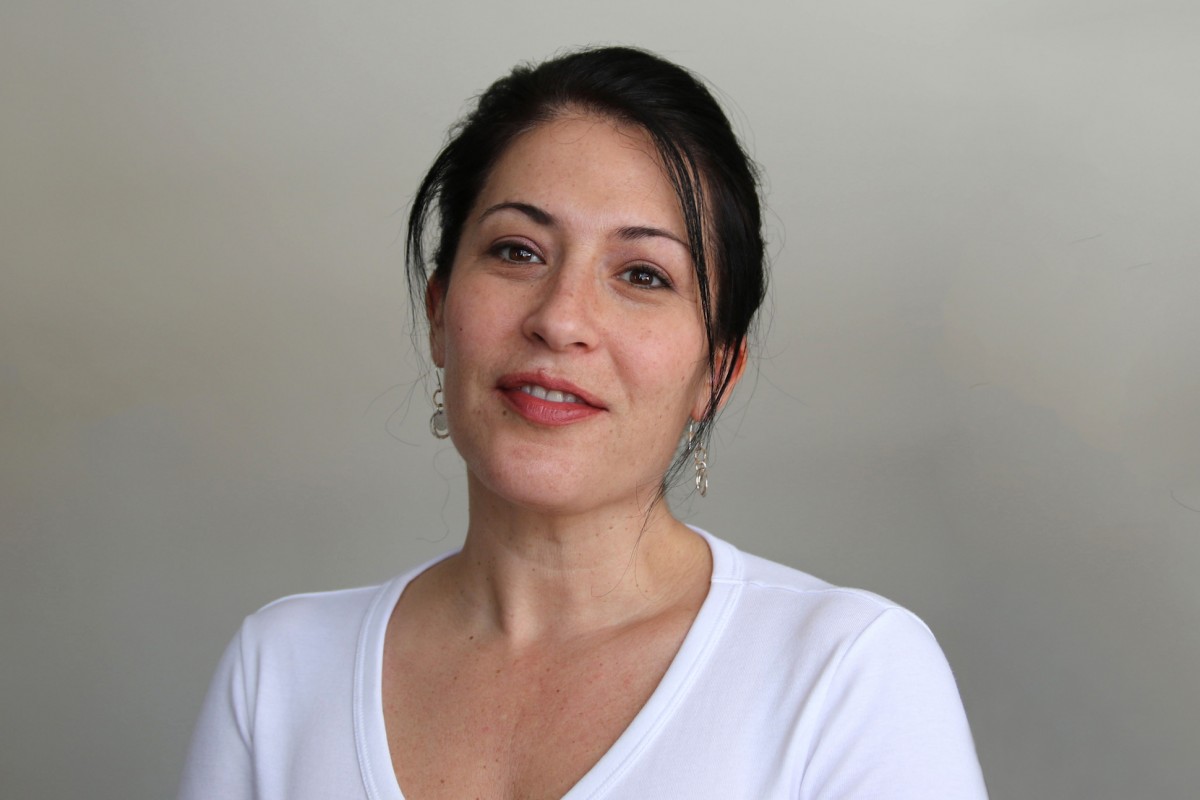
Ada Limon (born March 28, 1976) U.S. poet
Read more about Ada Limon in this May 2022 New York Times article
The Raincoat
When the doctor suggested surgery
and a brace for all my youngest years,
my parents scrambled to take me
to massage therapy, deep tissue work,
osteopathy, and soon my crooked spine
unspooled a bit, I could breathe again,
and move more in a body unclouded
by pain. My mom would tell me to sing
songs to her the whole forty-five minute
drive to Middle Two Rock Road and forty-
five minutes back from physical therapy.
She'd say, even my voice sounded unfettered
by my spine afterward. So I sang and sang,
because I thought she liked it. I never
asked her what she gave up to drive me,
or how her day was before this chore. Today,
at her age, I was driving myself home from yet
another spine appointment, singing along
to some maudlin but solid song on the radio,
and I saw a mom take her raincoat off
and give it to her young daughter when
a storm took over the afternoon. My god,
I thought, my whole life I've been under her
raincoat thinking it was somehow a marvel
that I never got wet.
Ada Limon talks about her writing
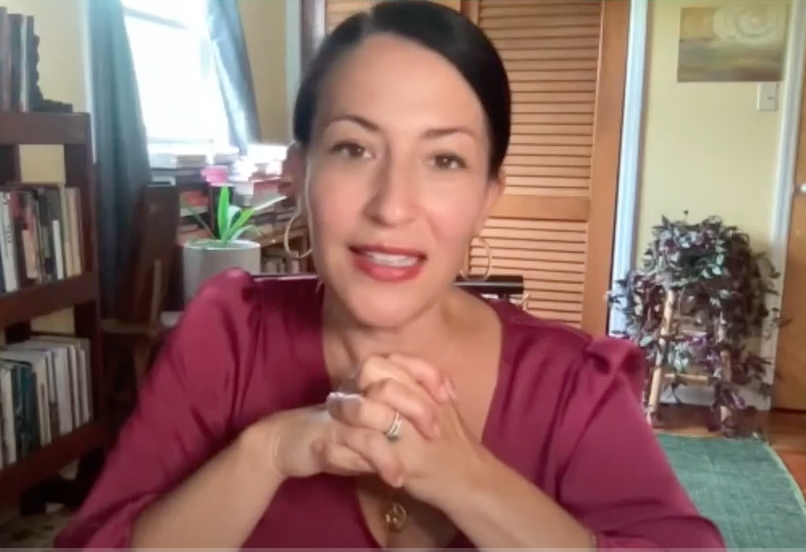 here
here
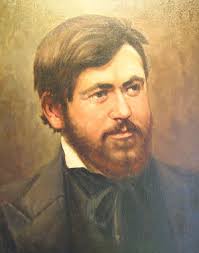
Dimcho Debelianov (Димчо Дебелянов) (born March 28, 1887) Bulgarian poet
Nocturne
A moontide tonight is quietly stirring
Flooding the aches of a road empty, deep,
Covering shame, drying eyes teary-blurring,
The day’s swarm of sorrows is blissful, asleep.
Through fields open wide and fruitful ranges,
No movement of sickle, no singing of scythes –
As though a zephyr of dew-bearing angels
Is sprinkling from amphoras in a gentle flight.
A distant star in the sky tumbles over,
Desertly silent in the black-clothed dome,
A wave rises-up and then topples-over,
Where a grass-hidden stream soundlessly roams.
Full of emotions, I’m still, yet I swim in
A sea of tranquillity, of heartfelt delights
And thus humbled, fervent,
I feel like I’m kissing
Through tearful visage, familiar eyes.
[Translated by Costa Manolchev]
The Legend of the Dissolute Queen
And there on coast deserted and alone
Caressed by eternal waters, but forever thrown
An ancient and nostalgic castle guards the shore
Castle – ominously wailing with its voiceless moan.
There gardens shyly whisper timid dreams
While the poisonous dew softly trembles in its grief
And the dead water of the fountain seems
To be drowning shadow trees and vague sunbeams.
Walls and vaults are dying tranquilly in age
While moss spreads with nails in columns’ range
No hour revealing happiness of sunny ray
No silver horn announcing gala day.
Only now and then a feeble whiff like breath
Awakes in sudden startled moan, so sad
That the dark pity of the virgin glory never shown
Reminds of some widowed and forgotten throne.
Hidden Moans
To come back to your father’s place
When quiet day is slowly dying
And silent night’s unfolding to embrace
And take the poor and the crying.
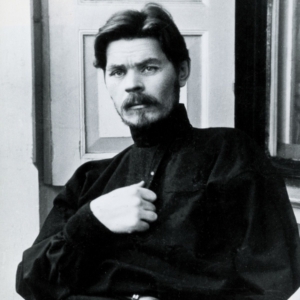
Maxim Gorky (Aleksey Maksimovich Peshkov) (born March 28, 1868) Russian novelist, short story writer, and playwright in the socialist realism genre – Mother
Read the Russiapedia article about Maxim Gorky
Excerpt from Chapter 4 of Gorky's novel Mother
Other people came from the city, oftenest among them a tall, well-built young girl with large eyes set in a thin, pale face. She was called Sashenka. There was something manly in her walk and movements; she knit her thick, dark eyebrows in a frown, and when she spoke the thin nostrils of her straight nose quivered.
She was the first to say, “We are socialists!” Her voice when she said it was loud and strident.
When the mother heard this word, she stared in dumb fright into the girl’s face. But Sashenka, half closing her eyes, said sternly and resolutely:
“We must give up all our forces to the cause of the regeneration of life; we must realize that we will receive no recompense.”
The mother understood that the socialists had killed the Czar. It had happened in the days of her youth; and people had then said that the landlords, wishing to revenge themselves on the Czar for liberating the peasant serfs, had vowed not to cut their hair until the Czar should be killed. These were the persons who had been called socialists. And now she could not understand why it was that her son and his friends were socialists.
When they had all departed, she asked Pavel:
“Pavlusha, are you a socialist?”
“Yes,” he said, standing before her, straight and stalwart as always.
“Why?”
The mother heaved a heavy sigh, and lowering her eyes, said:
“So, Pavlusha? Why, they are against the Czar; they killed one.”
Pavel walked up and down the room, ran his hand across his face, and, smiling, said:
“We don’t need to do that!”
He spoke to her for a long while in a low, serious voice. She looked into his face and thought:
“He will do nothing bad; he is incapable of doing bad!”
And thereafter the terrible word was repeated with increasing frequency; its sharpness wore off, and it became as familiar to her ear as scores of other words unintelligible to her. But Sashenka did not please her, and when she came the mother felt troubled and ill at ease.
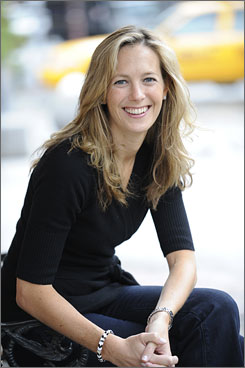
Lauren Weisberger (born March 28, 1977) U.S. novelist, journalist – Where the Grass Is Green and the Girls Are Pretty (2021)
Read about Lauren Weisberger here and here
Lauren Weisberger speaks of her 2021 novel, Where the Grass Is Green and the Girls Are Pretty
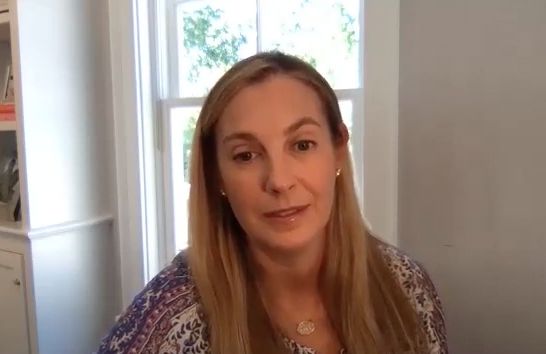 here
here
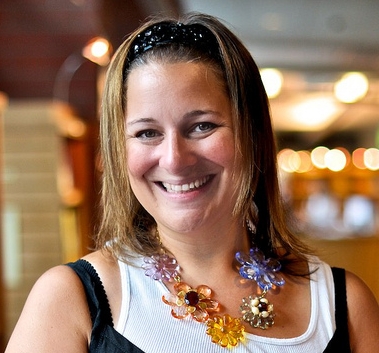
Jennifer Weiner (born March 28, 1970) U.S. novelist - The Summer Place (2022)
Jennifer Weiner talks about writing and her family
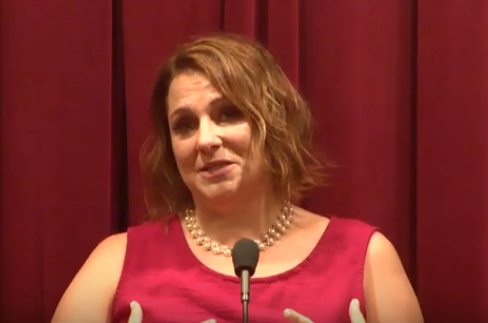 here
here